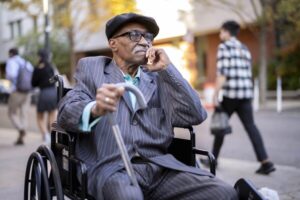B.C. child and family welfare laws now respect and uphold the inherent rights of Indigenous communities to provide their own child and family services with the passing of new legislation.
The Indigenous Self-Government in Child and Family Services Amendment Act makes B.C. the first jurisdiction in Canada to recognize an inherent right of self-government specifically in provincial legislation, which will help keep Indigenous children and youth safely connected to their families, cultures and communities.
The legislative amendments remove barriers and gaps within provincial legislation, enabling the Province and Indigenous Peoples to collaborate and ensure Indigenous Peoples can govern and provide services based on their own child and family laws.
The new act lays the path for Indigenous Peoples in B.C. to legally assume jurisdiction over child and family services in their communities. Four Indigenous governing bodies in B.C. are already engaged in collaborative discussions with the Province and Canada to exercise their jurisdiction, with more Nations preparing to begin the process.
The amendments:
- recognize the inherent right of self-government as written into section 35 of the Constitution Act, 1982, and provide a pathway for Indigenous Peoples to implement their own Indigenous laws over child and family services in B.C.;
- remove existing barriers and gaps to allow Indigenous governing bodies to exercise direct responsibility for their children and youth under their Indigenous laws in matters related to child protection, custody, guardianship and care; and
- strengthen consultation, co-operation and consent-based decision-making with Indigenous communities about adoption placements for Indigenous children and youth.
In addition, the act creates a new Indigenous child welfare director position within the Ministry of Children and Family Development. The Indigenous child welfare director will provide advice and guidance in relation to child-welfare services and crucial decisions related to Indigenous children and families in B.C., and harmonize Indigenous and provincial laws to work toward improved outcomes for Indigenous children, youth and future generations.
The changes, for which Indigenous Peoples have long-advocated, were made through co-operation and consultation with Indigenous rightsholders, Modern Treaty Nations, Indigenous governing bodies, Métis Nation B.C. and other Indigenous partners, such as the First Nations Leadership Council.
Learn More:
To learn about these changes, visit: https://news.gov.bc.ca/27668




